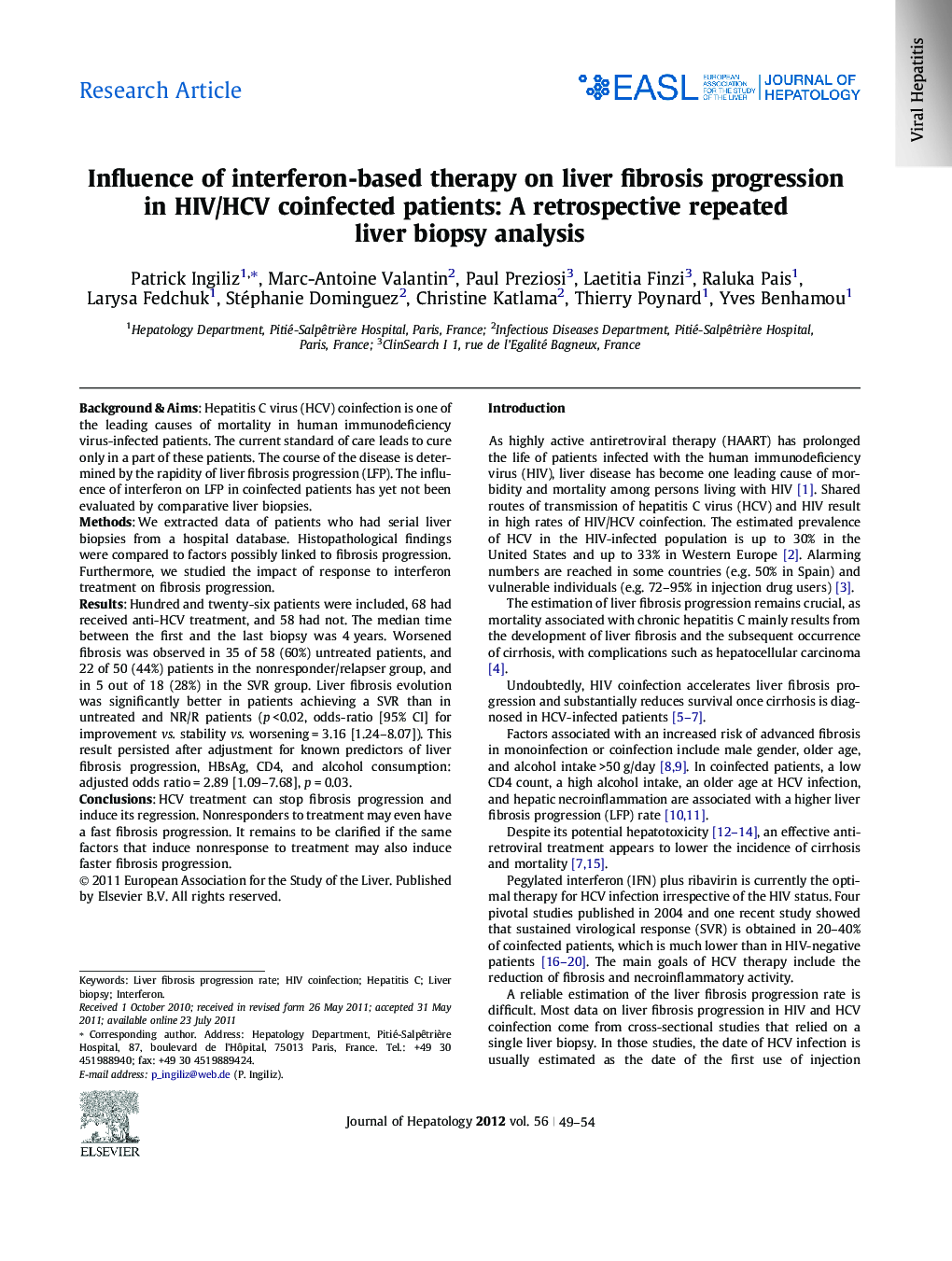| کد مقاله | کد نشریه | سال انتشار | مقاله انگلیسی | نسخه تمام متن |
|---|---|---|---|---|
| 6105259 | 1211146 | 2012 | 6 صفحه PDF | دانلود رایگان |

Background & AimsHepatitis C virus (HCV) coinfection is one of the leading causes of mortality in human immunodeficiency virus-infected patients. The current standard of care leads to cure only in a part of these patients. The course of the disease is determined by the rapidity of liver fibrosis progression (LFP). The influence of interferon on LFP in coinfected patients has yet not been evaluated by comparative liver biopsies.MethodsWe extracted data of patients who had serial liver biopsies from a hospital database. Histopathological findings were compared to factors possibly linked to fibrosis progression. Furthermore, we studied the impact of response to interferon treatment on fibrosis progression.ResultsHundred and twenty-six patients were included, 68 had received anti-HCV treatment, and 58 had not. The median time between the first and the last biopsy was 4 years. Worsened fibrosis was observed in 35 of 58 (60%) untreated patients, and 22 of 50 (44%) patients in the nonresponder/relapser group, and in 5 out of 18 (28%) in the SVR group. Liver fibrosis evolution was significantly better in patients achieving a SVR than in untreated and NR/R patients (p <0.02, odds-ratio [95% CI] for improvement vs. stability vs. worsening = 3.16 [1.24-8.07]). This result persisted after adjustment for known predictors of liver fibrosis progression, HBsAg, CD4, and alcohol consumption: adjusted odds ratio = 2.89 [1.09-7.68], p = 0.03.ConclusionsHCV treatment can stop fibrosis progression and induce its regression. Nonresponders to treatment may even have a fast fibrosis progression. It remains to be clarified if the same factors that induce nonresponse to treatment may also induce faster fibrosis progression.
Journal: Journal of Hepatology - Volume 56, Issue 1, January 2012, Pages 49-54